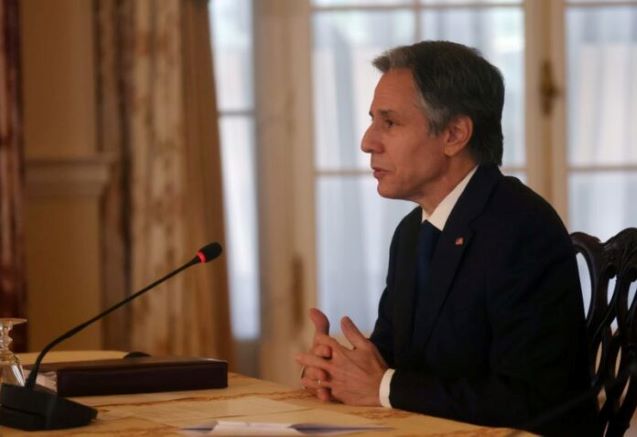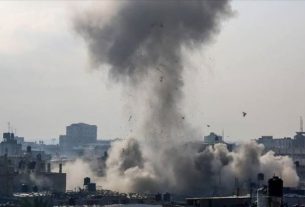US Secretary of State Antony Blinken said Monday that China has become “more aggressive abroad,” but Washington and Beijing still need to cooperate to solve big problems.
“We’ve seen a very different China emerge in recent years under (Chinese President) Xi Jinping’s leadership. It is more repressive at home, it’s more aggressive abroad,” said Blinken in a discussion with former Secretary of State Condoleezza Rice in California.
“In many instances, that poses a challenge to our own interests, as well as to our own values. But I also think it’s important not to reduce this to a bumper sticker. This relationship is among the most consequential that we have. It’s among the most challenging we have. It’s among the most complicated that we have,” said the top diplomat.
Blinken said “what we’ve seen in recent years is the emergence of clearly adversarial aspects to the relationship — competitive aspects, but there also remain cooperative aspects, and we can’t lose sight of those.”
“Because some of the really big problems that we have to find ways to solve are a lot harder to solve if the United States and China are not actually engaged in trying to solve them: climate, global health, etcetera.”
Turning to Taiwan, the top diplomat said there has been a change in the approach from China toward Taiwan in recent years, warning that Beijing “was determined to pursue reunification on a much faster timeline.”
“And if peaceful means didn’t work, then it would employ coercive means – and possibly, if coercive means don’t work, maybe forceful means – to achieve its objectives. And that is what is profoundly disrupting the status quo and creating tremendous tensions,” he added.
Blinken also warned that the Taiwan issue is not just a concern for the US but also for countries around the world.
“The amount of commercial traffic that goes through the straits every single day and has an impact on economies around the world is enormous. If that were to be disrupted as a result of a crisis, countries around the world would suffer,” he said.
“On semiconductors, if Taiwanese production were disrupted as a result of a crisis, you would have an economic crisis around the world,” he added.__The Nation





